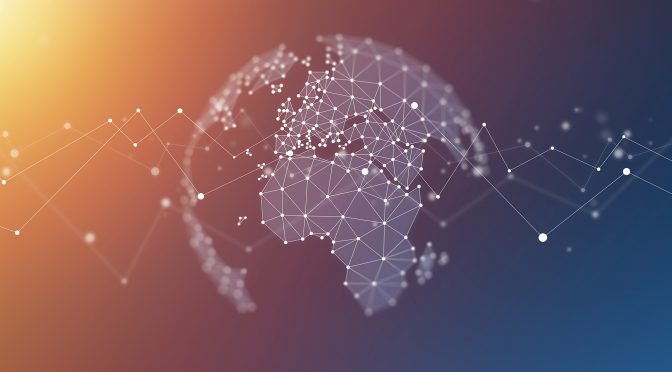In Africa, disruptive technologies are accelerating innovation and development and facilitating the energy transition. These stories are being told in a series of webinars by RES4AFRICA focusing on the relationship between digitalization and clean energy.
Stories about Africa are often peppered with platitudes and false myths that risk biasing the way we see this vast and extraordinarily diverse continent. This territory – as rich in differences as it is in resources –now appears determined to become the master of its own destiny through a genuine digital revolution, which is also key to accessing renewable energies.
Even though digitalization is not advancing in a uniform way, it is progressing in all African countries and in every sector of their economies. In Uganda and Kenya, for example, the first mobile payments via cellphones began in the mid 2000s: today these forms of payment are seeing a global boom in part due to the social distancing imposed as a result of Covid-19. Furthermore, mobile phone communications have developed rapidly in Africa recently, with growth between 2007 and 2016 at 344%, three times higher than in the rest of the world (data from ITU – International Telecommunication Union). Moreover, the GSM Association (Global System for Mobile Communications) has forecast that in 2025, almost half a billion people living in sub-Saharan Africa will have an internet connection via smartphone, the increasingly widespread use of which is not only bridging the long-standing communications gap resulting from the lack of land lines on the continent, but is also enabling the evolution of telemedicine. According to a study by the World Health Organization, since the beginning of the pandemic, more than 120 innovations in health technologies have been developed, many of which are based on cellphone apps, in addition to various online platforms that provide access to medical tests and consultations.
Today, 5G is also being trialed in Africa, in particular in Kenya and South Africa. There is also exponential growth in the number of innovation hubs: throughout Africa, data-driven research company Briter Bridges has counted more than 640 hubs across the continent, in particular in Nigeria, Egypt, South Africa, Uganda and Kenya. An area stretching from Uganda to Kenya has been termed the ‘Silicon Savannah’, where, according to statistics for 2020, internet use extends to 87.2% of the population.
Digital innovation also facilitates access to education. In Kenya, the online learning platform Eneza passed the milestone of one million users back in 2016. According to research group Imarc, the e-learning market on the African continent will be worth $1.4 billion in 2022, while the current health emergency may well further accelerate this growth.
Digitalization and the energy transition
So, for Africa, technological ‘disruption’ is a tangible means by which to ensure resilience and create a sustainable economy for its inhabitants. These developments are even more pertinent to the energy sector, where digitalization can play a crucial role in ensuring that millions of people who today do not have access to electricity pass directly to renewables and step straight into a near future that is already decarbonized, all at prices that are lower and without the need to invest in infrastructure that is not economically or logistically sustainable.
The RES4Africa Foundation has decided to dedicate a series of webinars to the relationship between digital innovation and clean energy. The first of these is titled “Disruptive Technologies for Africa: Riding the Wave of the Digital Revolution” and will be online from Wednesday, April 14 (register for free here). This webinar will focus on new technologies capable of immediately fostering the development of renewables on the African continent. Guest speakers include Salvatore Bernabei, CEO of Enel Green Power and President of RES4Africa; Nicola Rossi, Head of Innovation at Enel Green Power; and Giuseppe Serrecchia, Head of Digital Hub at Enel Green Power.
“Digital technologies are fundamental in accelerating the process of the energy transition in Africa: they create the basis for an interconnected system where renewable energy sources power smart grids that, in turn, enable new uses of energy, facilitating new services and production activities across the continent.”
Salvatore Bernabei, CEO of Enel Green Power and President of RES4Africa
How can digitalization help to integrate and implement renewable energies at all levels? First of all, by enabling networks to better match energy supply to demand: connectivity, combined with electrification and decentralization, creates an interconnected system, transforming and facilitating the way in which electricity is supplied and consumed. Thanks to new digital tools, it is possible to significantly reduce waste and losses of energy. All of this leads to safer, cheaper and more efficient processes for producing clean energy. Not to mention that digital technology can also support agriculture, bringing environmental sustainability to solar plants.
These topics and more will be addressed in the series of RES4Africa webinars beginning April 14; the calendar of appointments will continue until October. The second, on April 28, will examine the digital transformation of energy management and solutions for mini grid solutions. A third is planned for May 17 that will focus on electric mobility, while in June a meeting will be held on designing smart and sustainable infrastructure. Finally, in October, the last webinar will examine the use of energy storage to improve grid flexibility.
The goals of the RES4Africa Foundation’s webinars include increasing the adoption of low-cost digital solutions to accelerate the transformation of sustainable electricity systems in Africa; boosting know-how and capabilities in the sector of innovative technologies for the energy transition; supporting African countries in selecting solutions that increase the reliability and sustainability of their electricity service; and demonstrating the potential of renewable energy to foster access to electricity, energy demand and also renewable energy’s social and economic impact.


